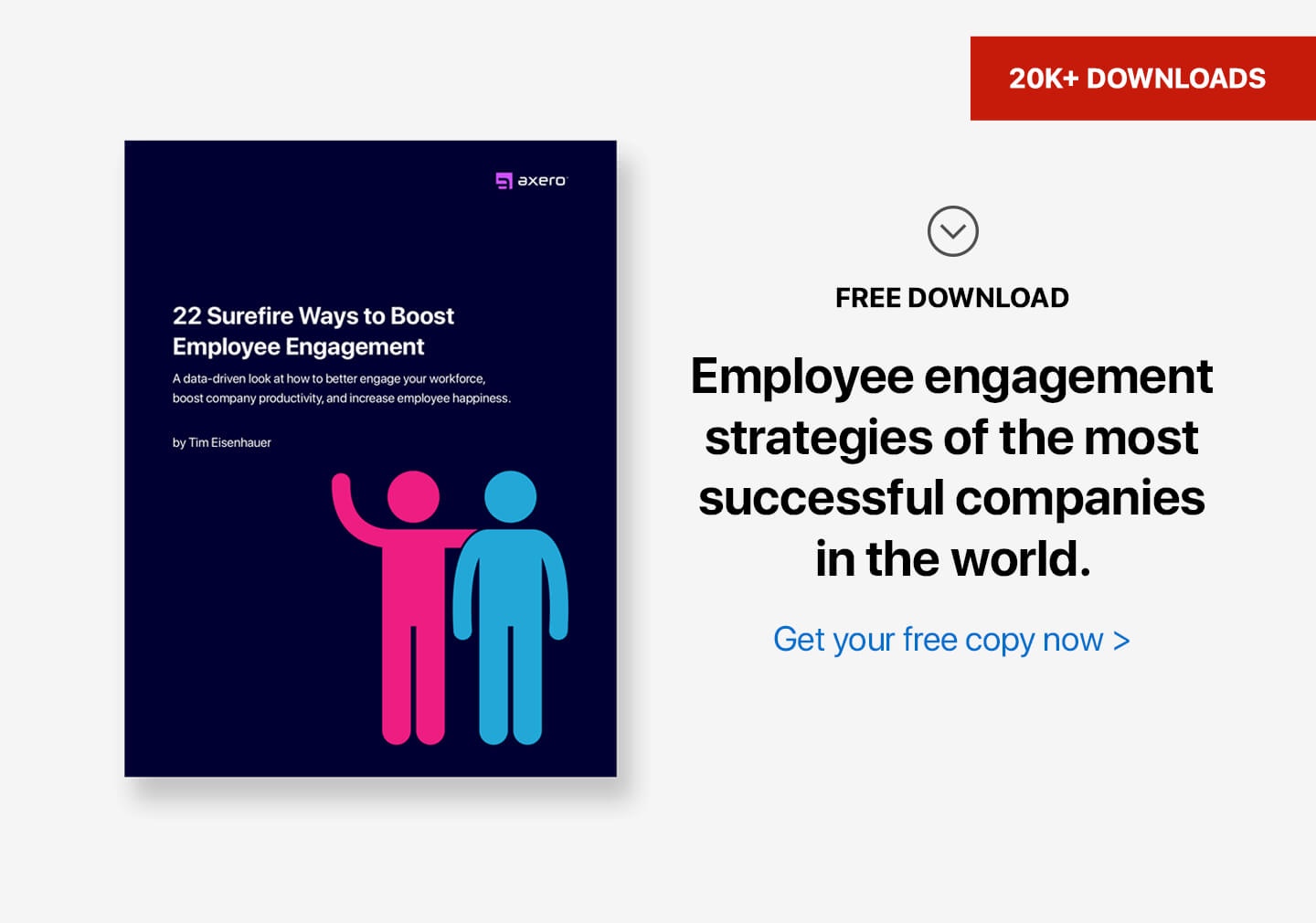I love hearing from my readers about their biggest challenge at work. As the responses come in, I keep thinking: how can I help these people? What can I say to them that they don’t already know? I wonder what would happen if I were in their shoes. Would I see the same problem? Or would I see something different?
Framing the problem is 80% of the solution. If we keep asking ourselves the same question, we will keep getting the same answer. The one that we know doesn’t work. But a new question will open the door to a new answer. So, if we ask different questions, we might get to the root of the problem, even if by mere accident.
What about questions that nobody is asking? Can they hold the key to our most persistent problems? Since we are still talking about employee engagement, let’s begin with the all-important subject of shitwork.
Although direct inquiries into the nature and origins of shitwork are rare, many people ask things like,
“How do I position myself for career advancement,” or—
“How do I get more opportunities to do the work I love?”
If you are a manager, not only do you ask these questions of yourself, you also need to ask them on behalf of every one of your employees. Unless, of course, you are the type of manager that doesn’t care about making the job rewarding and fulfilling for your people. In which case I’d like to refer you to my new book, Who the Hell Wants to Work for You.
The questions of career development and job satisfaction are extremely important to everyone in the company. To employees doing the work. To managers responsible for the outcomes. And to HR sourcing warm bodies to take care of business. And, as we peer into the fearsome darkness out of which these questions arise, we begin to understand why our work-lives shape themselves the way they do.
Shitwork!
Of course, there is no room for advancement if we keep doing things we already know how to do. And, obviously, we’ll never do anything we love if we spend all of our time doing work we despise. And what’s the point of even talking about engagement if, with each passing day, we fall further and further behind on our shit-to-do list—until we’re in a shitpile up to our eyebrows, and all we see is shit, shit, and more shit.
It’s a bleak picture, but a sadly accurate one, given all the complaints I get about sinking employee engagement and sagging employee morale. What do you think these employees see when they come to work? (And, likely, when they go home too?) Well, what you see is what you get. If we are to engage people at work, we must help them see something different.
Let’s consider the source of our problem. Where does all the shitwork come from? And why is it always plentiful, no matter how much of it we outsource to developing countries?
All paid work comes from management. Management decides what needs to be accomplished by what means of production and who is capable of doing what. And therein lies the true source of all pleasure and pain in the workplace. So here it is:
Management is the true source of all pleasure and pain in the workplace.
The downside is that you, the boss, take the blame for boring and disgruntling your employees. On the bright side, there’s so much opportunity to turn things around. We’ve already talked in the previous post about matching people to the jobs and using their talents correctly. Here’s more:
Let your people grow on the job
Look at the wanted ads. Most job descriptions require years of experience at something that takes an intelligent and motivated person six months to master. As managers, we like to give people work for which they are overqualified, just so we can over-cover our asses. We tell them that there will be opportunities to advance, but we don’t really mean it. There will be plenty of opportunities to do the same work forever, but we don’t mention it. Why state the obvious?
Is hiring less experienced people worth the risk? Does it pay off in higher employee morale? Look up Southwest Airlines on YouTube, where passengers still post videos of flight attendants slipping jokes into the in-flight emergency drill. (Here, here, and here.) Talk about shitwork transformed! Nor does Southwest care about previous work experience. They will hire and train teachers, police officers, salespeople, or anyone who loves taking care of customers and is thrilled to start a second career as a flight attendant.
If you want more detailed advice or if you are curious how other employers solve the problem of career development, take a look at Who the Hell Wants to Work for You?, Chapter 9—Support Career Development.
Trust them to do it their way
Growing your people is as much about training and mentoring them as it is about leaving them alone. Computer programs need detailed specs. People need creative challenges. Break every task into idiot-proof predictable steps—and you’ve created work that nobody likes to do. You already know this, but it’s worth repeating:
Micromanagement is the quickest and surest way to take the joy out of any job.
Much has been said about micromanagement. Still, the hardest part is figuring out whether we’re guilty of it. It’s a habit most micromanagers turn a blind eye to. Because when we do it, it’s not micromanagement, it’s the only way to avert a crisis and get the job done. It will take some effort, but there’s help for those ready to quit. I’ve found great advice on catching oneself in the act of micromanaging others. Go to Chapter 11 of my book, Let Go of Your Inner Micromanager, to see more.
Use Technology
Without computers we would still be typing and retyping documents, making copies, and doing data entry. All of which abundantly qualifies as shitwork. Today, millions of people, like my employees and myself, are writing new software. Most of it—to spare the humans some mundane and mind-numbing task. Check it out! Always look for ways to get a computer to do the work that no one else likes to do.
Make It a Game
Why is it that throwing a ball into a basket is a spectator sport, but making cold calls is a punishing chore?
A lot of it has to do with keeping score.
For some reason, our brains love to keep score, and it really doesn’t matter what we do. It could be stomach crunches. It could be working for tips. People even get off on counting calories and losing weight.
Say you have a task that no one likes to do. But you can’t outsource it and you can’t automate it. Can you find a way to assign a score to it? Like the number of cold calls made. The number of complaints closed. The number of…you name it.
Next—and this is what makes it into a game—keep this number where the person carrying out the task can see it. And, if other people are working on the same task, let everyone see everyone else’s numbers too.
You’re already tracking some metric or another. Every company does. Some even write these metrics into performance plans with individual and team goals calculated ahead of time. Great! Now you have a loathsome goal on top of a loathsome task.
Unfortunately, performance management, the way it’s typically done, does not translate into an exciting game. The trouble starts when only the manager can track everyone’s progress—and some are not even set up to continuously track anything at all. Imagine a game where only a coach can see the score, and only during halftime. Or where the opponent’s score is hidden from view. What kind of a game is that? If we don’t know whether we’re winning or losing, we don’t care.
Another mistake is to track complex results like revenues and profits, without keeping tabs on simple tasks under each person’s immediate control. Think of what the “Like” button does for Facebook. People don’t know if they are going to meet new friends or make money, but they keep posting to their timelines and updating their business pages because they know they can get “Likes.” And with each new “Like,” our brain gets just enough happy hormones to keep going.
Be Grateful
A scoreboard and a “Like” can turn a shitty task into a glorious one. Conversely, any work is shitwork if nobody sees or appreciates it. This is not a new subject, but one that is worth harping on, because here, again, we come face to face with our human failings.
It’s so much easier to get mad at people for not pulling their weight than to be grateful for what they accomplish. Gratitude needs to become a habit in the workplace. And it needs to extend in all directions: from management to people, from people to management, from employees to customers, from customers to employees, and from employees to one another.
Great companies have figured out some of the most unusual ways to cultivate gratitude. If you want to be great, you’ll have to come up with your own. In the meantime, if you want inspiration, see Chapter 23 in Who the Hell Wants to Work for You?—Say Thank You.
A word to the wise: my book and most of the things I post here are written for managers and business owners. But you don’t have to be a manager or an owner to think like one. When faced with shitwork, remember to ask the big questions. Why does this shit need to be done? Who is the best person to do this shit? How can I make this shit fun? (Yes, fun.) And how can I make this shit better for everyone?
_____
If you dislike shitwork, you might like my book, because it gives you a break from shitwork—at least while you’re reading!










